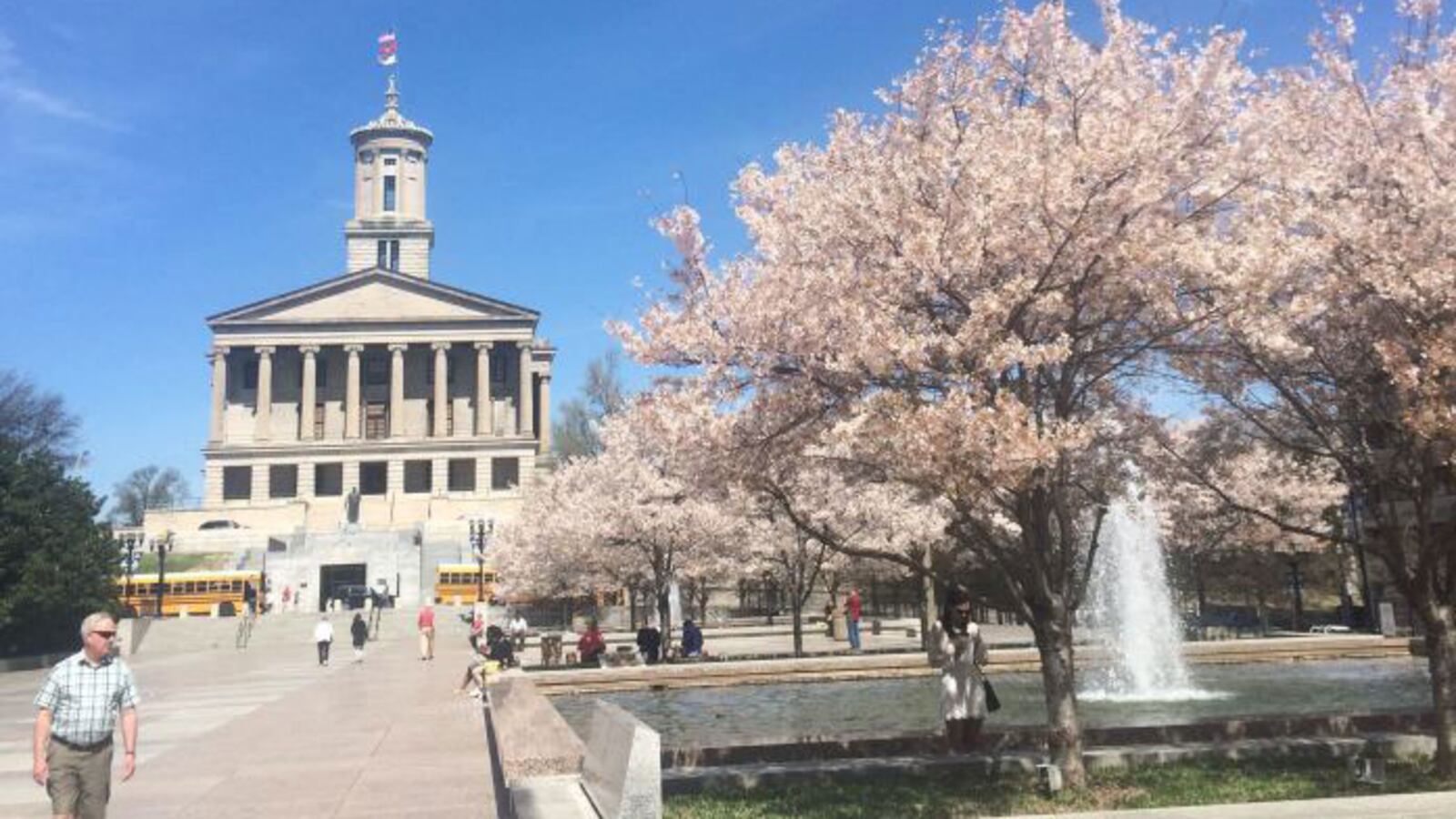Despite the sponsorship of key legislative leaders, a proposed constitutional amendment designed to give the Tennessee legislature more control over education funding — and the courts less say — floundered Wednesday in a Senate committee.
The resolution targeted “activist judges” ruling against state governments on issues regarding education, especially when it comes to funding. The measure had advanced through early committees with surprising ease and appeared to have momentum. Sen. Dolores Gresham, the powerful chairwoman of the Senate Education Committee, argued passionately in favor of the proposal, as did Rep. Bill Dunn of Knoxville, a key lawmaker.
But when the roll was called in the Senate Education Committee, the resolution fell one vote short of the five votes needed for passage. Four senators were for it, three abstained, and one voted it down. Sen. Brian Kelsey of Germantown, a supporter of the amendment, was absent.
The vote means that, unless the resolution is resurrected before the legislature’s expected adjournment next week, the proposed amendment could not reach voters on a statewide ballot until 2022.
Even if Tennessee’s constitution eventually was amended as proposed, it’s unclear how the revision could impact schools. A March 29 opinion from State Attorney General Herbert H. Slatery stated that amendment would have no bearing the “equal protection” provisions of the constitution that were the basis for a series of successful school funding lawsuits filed by districts against the state in the 1990s and early 2000s.
That’s one of the points argued before lawmakers by Roy Herron, a Dresden attorney and former state senator who now lobbies for Tennessee’s small school districts. At best, the amendment would be pointless, he said; at worst, it would be harmful.
Herron cautioned against any amendment aimed at diminishing constitutional protections for an adequate public education in Tennessee. And he argued that the courts are where districts have recourse to address such charges.
“Regardless of what folks may do elsewhere, we think we have a judiciary in Tennessee that can be respected,” Herron said.
Since 1993, the courts have ordered the legislature three times to provide more funding to rural school districts. And two new state funding lawsuits filed last year are pending.
Specifically, the resolution would amend the Tennessee Constitution by adding the phrases in italics to a sentence in Article XI, Section 12 so that it reads: “The General Assembly as the elected representatives of the people shall provide for the maintenance, support and eligibility standards of a system of free public schools in such manner as the General Assembly may determine.”
"Regardless of what folks may do elsewhere, we think we have a judiciary in Tennessee that can be respected."
Roy Herron, attorney for small districts
In his opinion, Slatery held that the new language, if adopted, “would do nothing to change the fact that any legislation enacted in furtherance of the public schools clause must comply with the equal protection guarantees of the Tennessee Constitution.”
Slattery called much of the proposed language “superfluous.”
Dunn, who wrote the resolution, said he was disappointed by Wednesday’s vote. He said schools should answer to democratically elected representatives, not appointed judges.
“Judges don’t go into your school; judges don’t ask hard questions,” said Dunn, who said he will continue to press for the change.
In the meantime, two lawsuits over state funding are winding their way through the courts — one filed by Shelby County Schools in Memphis and the other by Hamilton County Schools in Chattanooga with six surrounding smaller districts. At issue are the adequacy and equity of the state’s funding levels given its constitutional duty to provide “a system of free public schools” for children in Tennessee.

